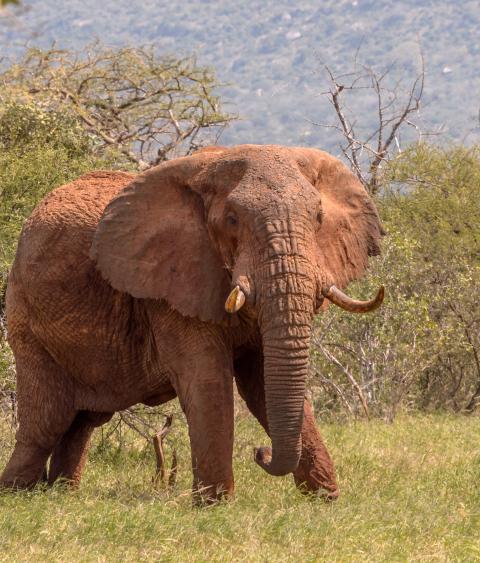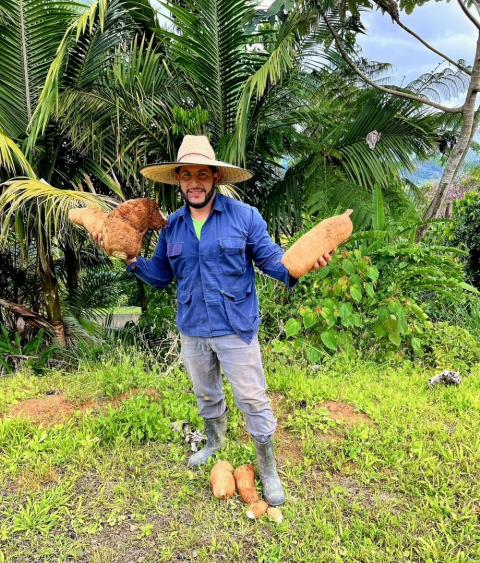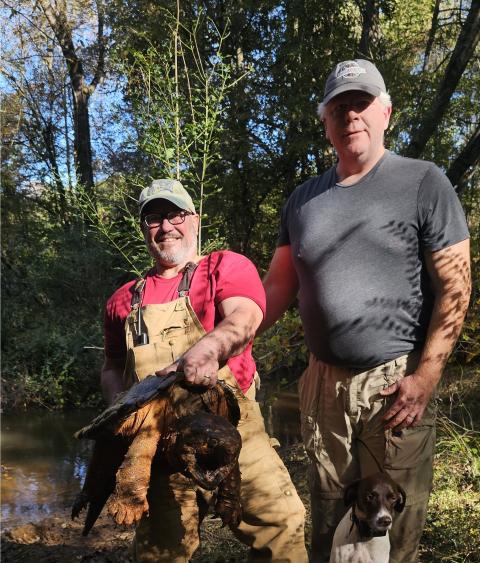Breadcrumb
- Home
- Outdoor News Bulletin
- July 2012
- Special Sessions Set For 78th North American, March 25-30, 2013
Outdoor News Bulletin
Special Sessions Set for 78th North American, March 25-30, 2013
The Program Committee for the 2013 North American Wildlife and Natural Resources Conference has announced the event's line-up of four concurrent Special Sessions scheduled to follow the Plenary Session on Wednesday, March 27.
In coordination with the Program Committee, Special Session co-chairs have drafted brief descriptions of the session topics. Persons?interested in presenting at one of these Special Sessions?are welcome to contact the appropriate co-chairs, and should do so as soon as possible.
The 78th North American will be held March 25-30, 2013, at Crystal Gateway Marriott in? Arlington, Virginia.
Do Public Trust Responsibilities Really Matter?
Co-chairs:
Dr. Daniel Decker, Human Dimensions Research Unit, Cornell University
Ann Forstchen, Florida Fish and Wildlife Conservation Commission
In the United States, state and federal governments have the legal trust authority and mandate to conserve wild, living resources for the benefit of people. This obligation, known as the "public trust doctrine," is the foundation for our approach to wildlife conservation nationally and the complex institution (e.g., fish and wildlife agencies, non-governmental wildlife conservation organizations, etc.) that has been created to support the conservation of wildlife. The public trust doctrine stands as both the reason and requirement placed on government to conserve all wildlife for all people ? including future generations.
The public trust obligations of state government can provide a platform for resolving the current conservation crisis posed by declining state fish and wildlife agency budgets, shrinking wildlife habitats, and increased human pressures on wildlife. Expanded awareness of the possibilities associated with a strengthened wildlife conservation institution based on public trust principles can best be realized through the state fish and wildlife agencies themselves. By fully embracing public trust principles, state wildlife agencies can remain relevant and viable as the primary entities for delivery of wildlife conservation in a rapidly changing ecological and sociocultural landscape.
In this Special Session experts will share,
- Perspectives on the legal implications of the public trust doctrine;
- Experiences from state agencies on the current constraints they face in broadly serving all of their public trust beneficiaries;
- Recommendations on what is necessary for an agency to embrace and comprehensively apply public trust principles; and
- How these principles can help agencies garner political and financial support from a broader set of beneficiaries of the public wildlife trust.
Session speakers will provide attendees with an understanding of the full responsibilities of a public trust agency in the U.S., and illustrate how the wildlife conservation institution can better serve all of the beneficiaries of the public wildlife trust now and in the future.
Talking to Sportsmen and Women about Hunting and Fishing in a Changing Climate
Co-chairs:
Land Tawney, National Wildlife Federation
Bill Geer, Theodore Roosevelt Conservation Partnership
Since 2008, the fish and wildlife conservation community has supported several climate change bills presented to Congress that included well-reasoned provisions for natural resources adaptation that would help many species of fish and wildlife survive in viable populations in a changing climate. Unfortunately, neither the vast collection of science-based recommendations made to Congressional committee staff nor the letters of support submitted by hundreds of fish and wildlife conservation organizations throughout the country resulted in any of these bills passing in the House or Senate.
In retrospect, it appears that the supportive input from fish and wildlife professionals was overwhelmed by the lack of support from the voting public as expressed in numerous national polls. Many sportsmen and women joined in the skepticism affecting the majority of the public, and numerous state fish and wildlife management agencies responded by withdrawing overt support of climate change policies and legislation.
The roller-coaster path of public opinion regarding climate change has challenged nearly all fish and wildlife agencies who are working to address the realities of managing sustainable wildlife populations in a changing climate. It is imperative that sportsmen and women be better informed on the potential impacts of climate change on fish and wildlife and the implications for sustainable hunting and fishing in the future. A well-informed public remains the key to success of effective climate change legislation and the development and implementation of sound climate-based policies.
This special session will present field-tested experience in climate change messaging and messengers that have helped defuse unsubstantiated skepticism among sportsmen and women. Observations and experience will include examples of communications failures as well as successes from several on-the-ground practitioners who have been actively engaged in sportsmen-based climate change education for the past three years.
Landscape Conservation in North America: Collaborating within and among Partnerships
Co-chairs:
Kevin Hunting, California Department of Fish and Game
Andrew Milliken, U.S. Fish and Wildlife Service
The last decade has seen significant advancements in the nature and number of science- management partnerships that address landscape-level conservation throughout North America. Numerous federal and state agencies as well as conservation NGO's have joined forces via these partnerships to advance conservation that is holistic, collaborative, adaptive and grounded in science to ensure the sustainability of our lands, waters, wildlife and cultural resources. Given that landscape-level conservation challenges often overlap and frequently transcend political boundaries, there exists innumerable opportunities for the various initiatives and partnerships to inform, interact and support each other. There is a need for increased communication, coordination and collaboration to avoid redundancy and ensure that these partnerships can help inform and deliver conservation efficiently.
This two-hour special session will explore the latest initiatives and developments in landscape conservation across North America while also highlighting specific case studies of how agencies and other partners are collaborating to address regional conservation issues. Additionally, the session will provide information on how State Wildlife Action Plan (SWAP) updates will be incorporating this landscape and regional-scale information.
Session speakers will explore how initiatives such as Northeast Regional Conservation Needs, Western Governors' Wildlife Council, National Fish, Wildlife and Plants Climate Adaptation Strategy, Fish Habitat Partnerships, and Migratory Bird Joint Ventures are being incorporated into SWAP's and collaborating with Landscape Conservation Cooperatives and other regional, national and international collaborative conservation partnerships. A panel discussion will offer the opportunity for participant input and dialog on lessons learned and opportunities for improving collaboration.
Implications of Energy and Agriculture Development for Wildlife on Private Lands
Co-chairs:
Dr. Ed Arnett, Theodore Roosevelt Conservation Partnership
Dr. Tim McCoy, Nebraska Game and Parks Commission
Private lands comprise 60 percent of the total land base of the United States and provide irreplaceable habitat for a multitude of wildlife species. According to the U.S. Forest Service, 60 percent of forest-dependent animal species of conservation concern occur on private forests in the coterminous United States. In addition, private lands occupy an overwhelming portion of land area under the three major land use practices in the U.S., accounting for 99 percent of cropland, 61 percent of grassland and rangeland, and 56 percent of forest land.
Following the emergence of renewable energy sources such as wind and solar coupled with traditional fossil fuel extraction, energy development on private lands has dramatically increased in recent years. The emergence of biofuels and rising crop prices have resulted in broad scale shifts from natural resource conservation to production. This trend has resulted in declining wildlife populations, lost habitat, fewer opportunities for conservation and mitigation, and reduced access to recreational hunting opportunities for sportsmen and women. Given current and impending private land management policies, the nation's wildlife and fisheries resources will be further threatened in the coming years unless greater balance can be restored.
This special session will address threats to and opportunities for habitat conservation in relation to rapidly growing energy development and expanding crop production on private lands. Speakers will address how multiple factors are affecting wildlife, outdoor recreational opportunities, landowners, and the public.?They will identify creative policy and management approaches to promote diverse, abundant and sustainable wildlife resources on private lands while balancing the nation's need for food and energy production.



